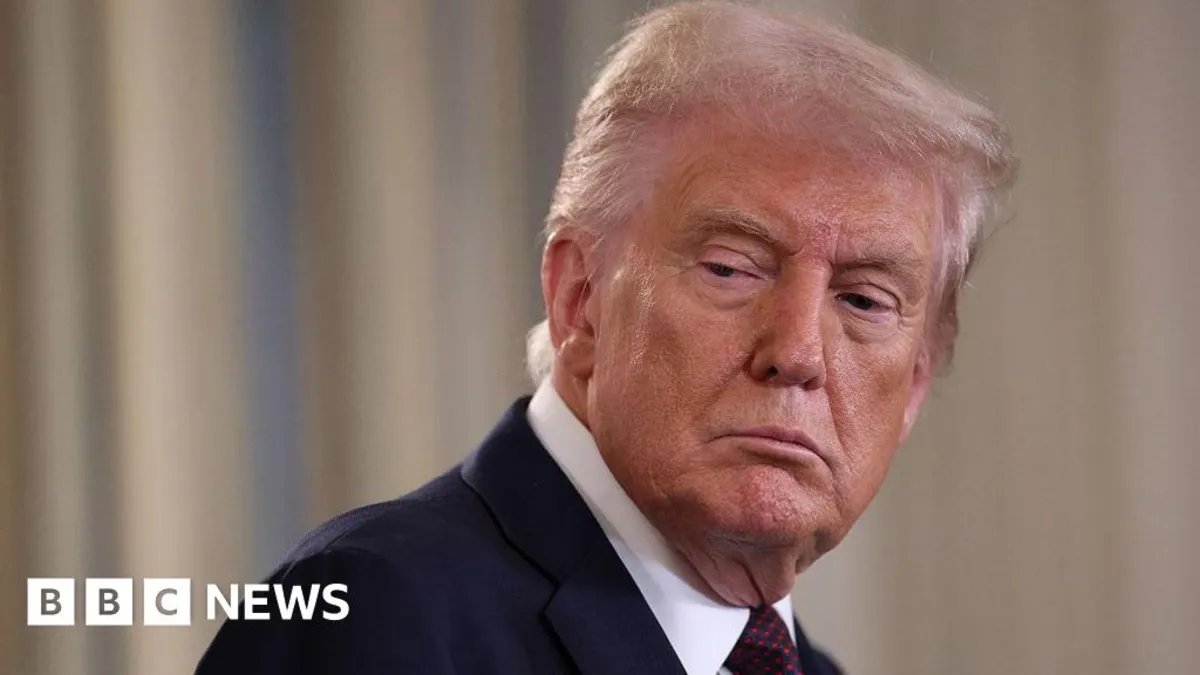
The White House has publicly criticized the Nobel Committee for what it perceives as a politically motivated decision in awarding this year's coveted Peace Prize to a Venezuelan pro-democracy activist, María Corina Machado, instead of President Donald Trump. This statement follows the Committee's announcement on Friday, recognizing Machado for her relentless efforts in advocating for democratic rights for the people of Venezuela.
President Trump has made no secret of his desire to be awarded the Nobel Peace Prize, often highlighting his role in resolving various global conflicts. He prominently mentioned his aspirations during his address at the UN General Assembly in September, asserting his contributions toward peace worldwide. In response to the Committee's decision, White House Communications Director Steven Cheung remarked that the Nobel Committee prioritizes politics over genuine peace efforts.
Despite the criticism from the White House, the president has played a crucial role in negotiating a multi-stage ceasefire deal in Gaza, announced just two days before the Nobel Peace Prize was awarded. Trump has claimed credit for ending numerous conflicts during his presidency, reinforcing his position as a potential candidate for the prestigious award. Following the ceasefire announcement, Trump expressed his sentiments on social media, stating, "BLESSED ARE THE PEACEMAKERS," while the White House dubbed him the "peace president."
Trump's ambitions for a Nobel Peace Prize have garnered support from various international leaders. Notably, Israel's Prime Minister Benjamin Netanyahu has publicly advocated that Trump deserves this honor. In a press interaction, Russian President Vladimir Putin acknowledged Trump's efforts in resolving complex global crises, further emphasizing the international perspective on Trump's contributions to peace. In a show of solidarity, Machado herself credited Trump for his decisive support of her cause, dedicating her award to both the Venezuelan people and the president.
Despite the lobbying efforts and international support, Trump faced significant challenges in this year's Nobel nomination process. Nominations for the Nobel Peace Prize close annually on January 31, shortly after Trump assumed office. Although he has made strides in international diplomacy, it remains unclear what specific achievement he could have presented for consideration this year. The ongoing conflict in Ukraine and the initial stages of the ceasefire between Israel and Hamas may not align with the Committee's criteria for the award.
In his second term, Trump has embraced an America-first policy, significantly altering the United States' role in both the global economy and diplomatic arena. His administration's approach has sparked controversies, particularly regarding humanitarian assistance. Early in his presidency, Trump's then-advisor Elon Musk led the dismantling of the United States Agency for International Development (USAID), which previously provided critical humanitarian aid worldwide.
The Nobel Committee traditionally awards the Peace Prize to leaders who advocate for arms control, disarmament, peace negotiations, and the promotion of democracy and human rights. However, Trump's policies, particularly regarding mass deportations and his attempts to deploy National Guard troops for domestic violence control, have faced backlash from humanitarian groups and civil rights advocates.
Throughout its history, the Nobel Peace Prize has been awarded to four U.S. presidents: Theodore Roosevelt, Woodrow Wilson, Jimmy Carter, and Barack Obama. Notably, Obama is the only president who received the award while still in office, highlighting the complexities and nuances surrounding the selection process and the political implications tied to the Nobel Peace Prize.